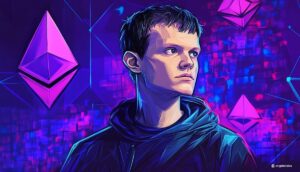Imagine a world where the next generation is not just passive consumers of technology but active builders of it. In Buenos Aires, Argentina, this vision is becoming a reality as students are introduced to the transformative potential of blockchain technology. With the government’s commitment to embedding blockchain education in high schools, students are being empowered to not only understand but also shape the future of finance, technology, and social innovation.
Pioneering a New Educational Framework: Blockchain in the Curriculum
In a strategic move, Argentina’s Ministry of Education has collaborated with the ETH Kipu Foundation to weave blockchain concepts into the fabric of the high school curriculum. This initiative is a significant step towards establishing Argentina as a frontrunner in blockchain education across Latin America. The program is meticulously crafted to equip students with the essential skills and knowledge necessary to thrive in an industry that is rapidly gaining momentum.
The curriculum covers foundational aspects of blockchain technology, such as cryptography, decentralized networks, and smart contracts. Students will engage with Solidity, a programming language tailored for creating applications on the Ethereum platform. This hands-on approach is further enhanced through professional internships focused on real-world blockchain projects, allowing students to apply their theoretical knowledge in practical settings.
Charting Career Paths in the Blockchain Sphere

The rise of blockchain technology is not merely a trend; it is creating a plethora of career opportunities for those equipped with the requisite skills. Students who emerge from this educational initiative can pursue a variety of roles across multiple sectors, including:
- Blockchain Developers: Tasked with the development and maintenance of blockchain applications, these professionals utilize programming languages like Solidity to create smart contracts and decentralized applications (DApps).
- Blockchain Analysts: These individuals delve into blockchain data, analyzing trends, assessing risks, and generating insights for businesses and investors to navigate this complex landscape.
- Blockchain Entrepreneurs: Armed with a robust understanding of blockchain principles, these innovators can develop groundbreaking solutions across diverse industries, harnessing the power of decentralization and transparency.
Addressing Challenges: The Complex Landscape of Blockchain
While the prospects in the blockchain sector are promising, it is crucial to recognize the hurdles that students may face as they embark on this journey.
- Market Volatility: The cryptocurrency sector is notorious for its fluctuations, presenting uncertainties and risks for those involved in blockchain technologies.
- Continuous Learning: The blockchain domain is in a state of constant evolution, necessitating that individuals remain informed about the latest advancements and industry trends.
- Ethical Implications: With the increasing adoption of blockchain technology, ethical concerns regarding privacy, security, and responsible development practices come to the forefront.
Conclusion
Argentina’s proactive approach to blockchain education marks a pivotal moment in preparing its youth for the challenges and opportunities of the future. By embedding this technology into the educational framework, the country is not only equipping students with invaluable skills but also asserting itself as a key player in the global blockchain movement. This initiative holds the potential to cultivate a new wave of developers, analysts, and entrepreneurs who will drive the evolution and integration of blockchain technology across various sectors, ultimately contributing to a more decentralized and equitable world.














 Bitcoin
Bitcoin  Ethereum
Ethereum  Tether
Tether  XRP
XRP  Solana
Solana  USDC
USDC  Dogecoin
Dogecoin  Cardano
Cardano  TRON
TRON